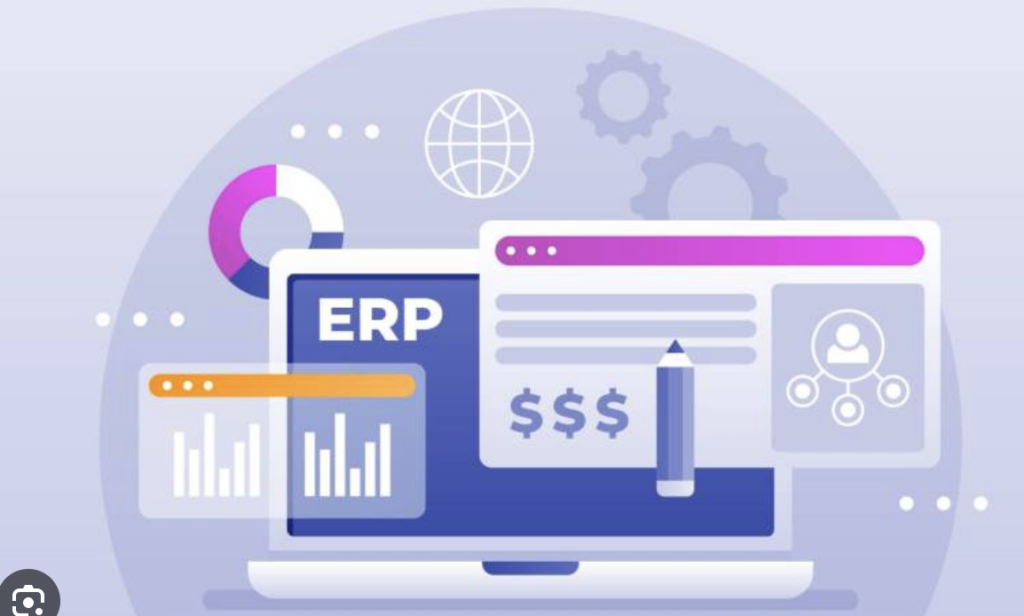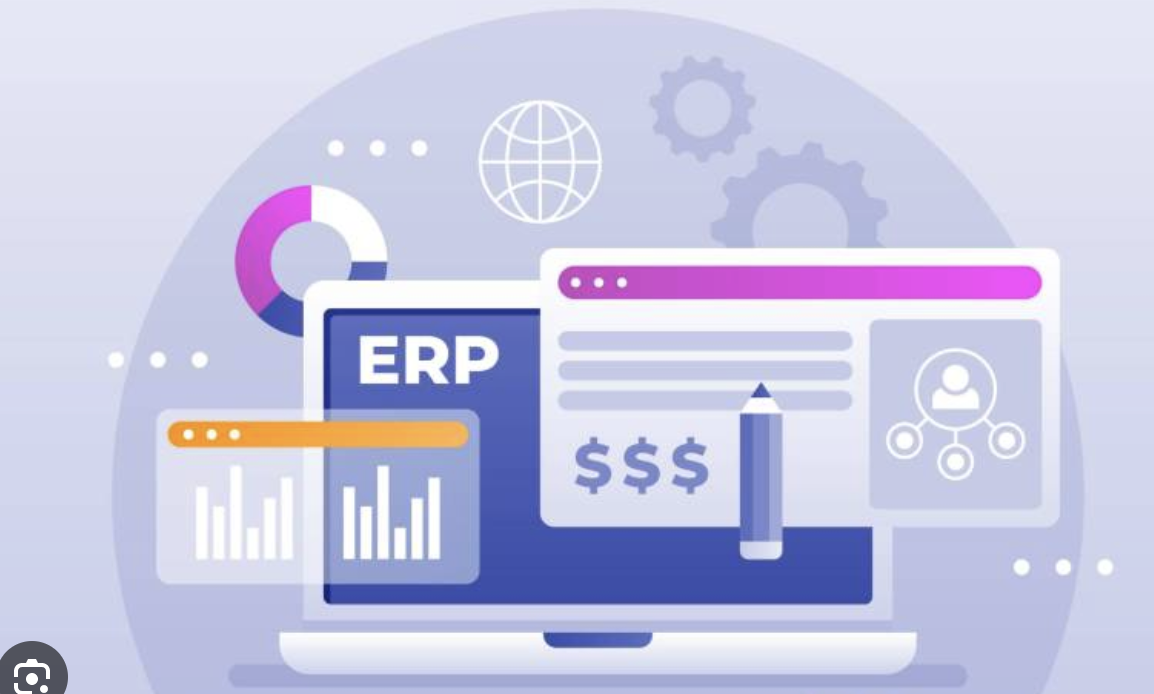The Path to Business Excellence with a Dynamic ERP
In today’s fiercely competitive business landscape, organizations strive for excellence, seeking every opportunity to gain a strategic edge. The advent of Enterprise Resource Planning (ERP) systems has revolutionized the way businesses operate, offering a dynamic platform that integrates various functions into a unified system. An ERP system serves as the backbone of modern enterprises, facilitating seamless coordination and enhancing operational efficiency. Let’s delve into the transformative journey businesses embark on when implementing a dynamic ERP system.

Introduction: Understanding the significance of an ERP system
ERP systems have become indispensable tools for businesses, enabling them to streamline operations and manage resources efficiently. With its integrated approach, an ERP system empowers organizations to optimize their processes and foster growth. Understanding the pivotal role of ERP in the contemporary business landscape is essential for harnessing its full potential.
The Role of ERP in Enhancing Business Operations
Streamlining Processes with ERP
ERP systems facilitate the streamlining of complex business processes, eliminating redundancies and enhancing overall productivity. By centralizing data and automating routine tasks, businesses can achieve operational efficiency and reduce manual errors significantly.
Boosting Efficiency and Productivity
Implementing a dynamic ERP solution enables businesses to enhance their overall efficiency and productivity. By automating tasks and workflows, employees can focus on high-value activities, leading to improved output and accelerated business growth.
Real-time Data Analysis for Informed Decision-making
One of the key advantages of a dynamic ERP system is its ability to provide real-time data insights. By analyzing critical data in real-time, businesses can make informed decisions promptly, gaining a competitive advantage in a rapidly evolving market landscape.
Implementing a Dynamic ERP System
Successfully implementing a dynamic ERP system requires a comprehensive approach that aligns with the organization’s goals and objectives. This process involves meticulous planning and execution, ensuring a seamless transition and integration within the existing business framework.
Assessing Business Needs and Objectives
Before implementing an ERP system, businesses must conduct a thorough assessment of their specific needs and objectives. Understanding the core requirements allows for the selection of an ERP solution that aligns with the organization’s unique challenges and goals.
Choosing the Right ERP Solution
Selecting the appropriate ERP solution is crucial for successful implementation. Businesses should evaluate various factors such as scalability, customization options, and vendor reliability to choose an ERP system that caters to their specific operational requirements.
Planning and Execution of Implementation
A well-defined implementation strategy is essential for the successful integration of an ERP system. Adequate planning and meticulous execution ensure a smooth transition, minimizing disruptions and maximizing the benefits of the ERP solution.
Integrating ERP with Existing Systems and Processes
Integrating an ERP system with existing business processes and systems can present challenges that require careful consideration and strategic planning.
Overcoming Integration Challenges
The integration of an ERP system with existing processes may present technical and operational challenges. Businesses need to identify and address potential integration issues to ensure seamless data flow and operational continuity.
Ensuring Seamless Data Flow
Efficient data flow between the ERP system and existing processes is critical for achieving operational synergy. Ensuring seamless data integration is essential for maintaining accurate and up-to-date information across all departments and functions.
Harnessing the Power of Data Analytics and Reporting
An effective ERP system empowers businesses with advanced data analytics and reporting capabilities, enabling them to derive valuable insights and drive strategic decision-making.
Leveraging Insights for Strategic Growth
By leveraging the analytical capabilities of an ERP system, businesses can gain valuable insights into consumer behavior, market trends, and internal operations. These insights facilitate informed strategic planning, fostering sustainable growth and development.
Enhancing Customer Experience through Personalization
Utilizing ERP data to personalize customer experiences can significantly enhance customer satisfaction and loyalty. By understanding customer preferences and behaviors, businesses can tailor their products and services to meet specific needs, fostering long-term relationships and brand loyalty.
Ensuring Security and Compliance with ERP
Maintaining robust security measures and compliance standards is paramount when implementing an ERP system to safeguard sensitive data and uphold regulatory requirements.
Implementing Robust Security Measures
Businesses must prioritize the implementation of robust security measures to protect sensitive data from potential cyber threats and breaches. This includes deploying encryption protocols, access controls, and regular security audits to ensure data integrity and confidentiality.
Meeting Regulatory Standards and Compliance
Compliance with industry regulations and standards is critical for maintaining business integrity and trust. Businesses must ensure that their ERP system complies with relevant data protection and privacy regulations to mitigate legal and financial risks.
The Impact of ERP on Business Growth and Sustainability
A dynamic ERP system plays a pivotal role in driving business growth and ensuring long-term sustainability, providing a solid foundation for scalable operations and agile decision-making.
Scaling Operations and Expanding Reach
With a robust ERP system in place, businesses can scale their operations seamlessly, expanding their reach and market presence. The scalability of an ERP system enables businesses to adapt to evolving market dynamics and capitalize on emerging opportunities.
Adapting to Changing Market Dynamics
In a rapidly evolving business environment, the ability to adapt to changing market dynamics is crucial for sustained success. An ERP system equips businesses with the agility and flexibility to respond promptly to market shifts and consumer demands, fostering resilience and competitiveness.
Overcoming Challenges and Roadblocks in ERP Implementation
The implementation of an ERP system may encounter challenges and resistance within the organization, necessitating effective strategies to overcome obstacles and ensure a smooth transition.
Addressing Resistance to Change
Introducing an ERP system often triggers resistance to change among employees and stakeholders. Businesses must prioritize change management strategies, including comprehensive training programs and transparent communication, to foster acceptance and engagement throughout the transition process.
Managing Transition Period Challenges
The transition period during ERP implementation may present operational challenges that require proactive management and support. Businesses must anticipate potential disruptions and establish contingency plans to minimize the impact on day-to-day operations.

